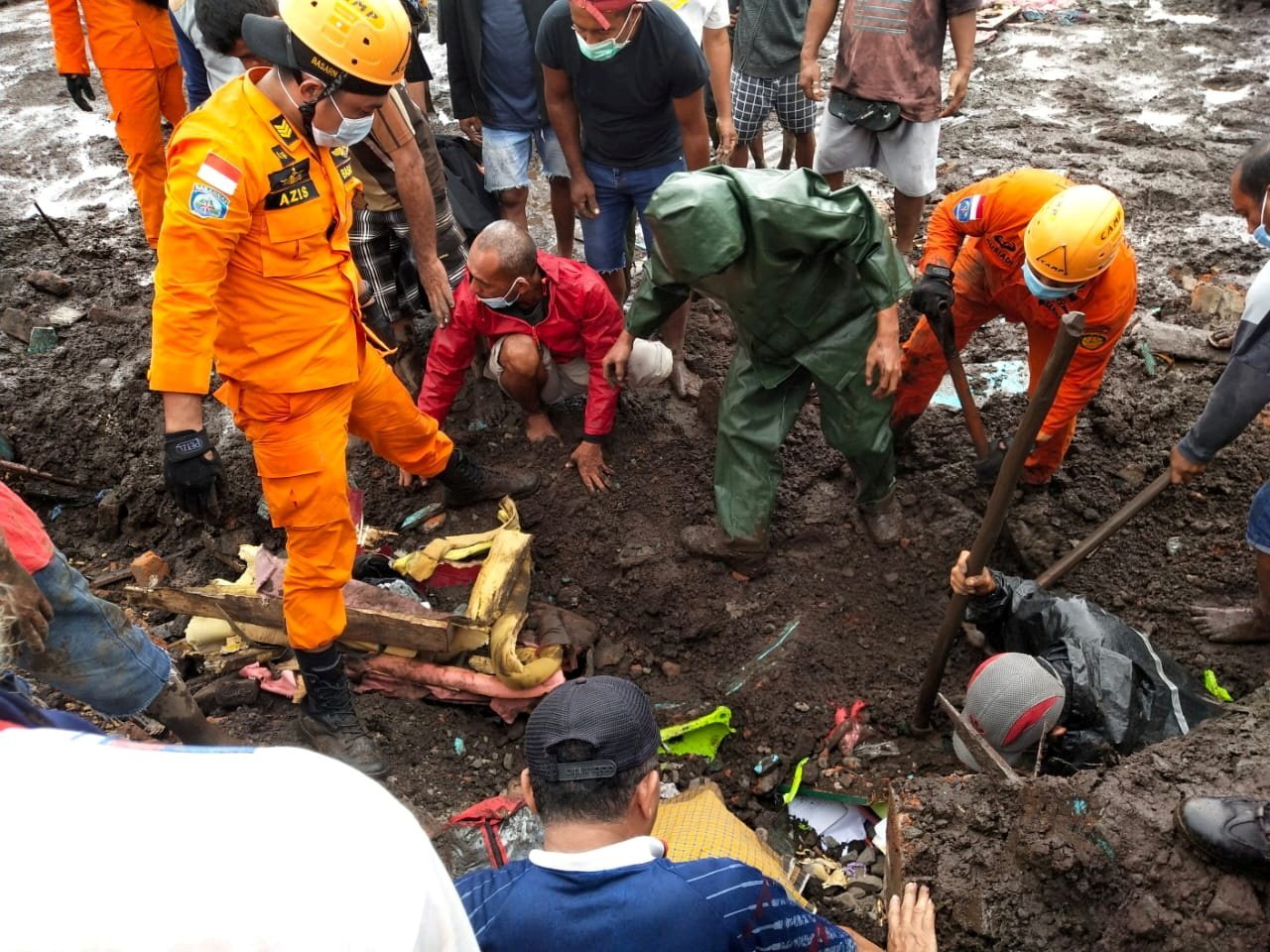Floods and landslides triggered by tropical cyclone Seroja in a cluster of islands in southeast Indonesia and East Timor have killed 97 people, with many still unaccounted for and thousands displaced, officials said on Monday.
At least 70 deaths were reported in several islands in Indonesia’s West and East Nusa Tenggara provinces, while 70 others were missing, after the cyclone brought flash floods, landslides and strong winds amid heavy rain over the weekend, disaster agency BNPB said.
In East Timor, which shares the Timor island with Indonesia, at least 27 people were killed by landslides, flash floods and a falling tree, while 7,000 displaced, its government said.
On Lembata island, authorities feared bodies had been washed away.
“We are using rubber boats to find bodies at sea. In several villages, flash floods hit while people were sleeping,” Thomas Ola Langoday, deputy head of Lembata district government, told Reuters by phone.
About 30,000 people have been impacted by floods in Indonesia, some already taking shelter in evacuation centres, but rescue operations have been made difficult after five bridges collapsed and falling trees blocked some roads, BNPB spokesman Raditya Jati said.
A continuing storm had also halted evacuations in some places, local authorities said.
Hundreds of houses and other facilities such as a solar power plant were damaged, BNPB said. Ships and motor boats sank as the cyclone set off waves as high as 6 metres.
Powerful currents continued to flow through villages in the Malaka district on Timor island on Monday, even though the rain had stopped.
Some residents there hauled themselves to their roofs to escape flood water rising to 3-4 metres.
“We had to dismantle the zinc roof. We went out through the back door and pulled ourselves out with a rope,” Agustina Luruk, 36, told Reuters as she and her three daughters waited to be evacuated by the side of a muddy road.
President Joko Widodo offered his condolences and ordered speedy disaster relief efforts.
The Seroja cyclone hit the Savu sea southwest of Timor island in the early hours of Monday, Indonesia’s weather agency said.
Within 24 hours, the cyclone’s intensity could strengthen, bringing yet more rain, waves and winds, although it was moving away from Indonesia, the agency said.







Click here to change your cookie preferences